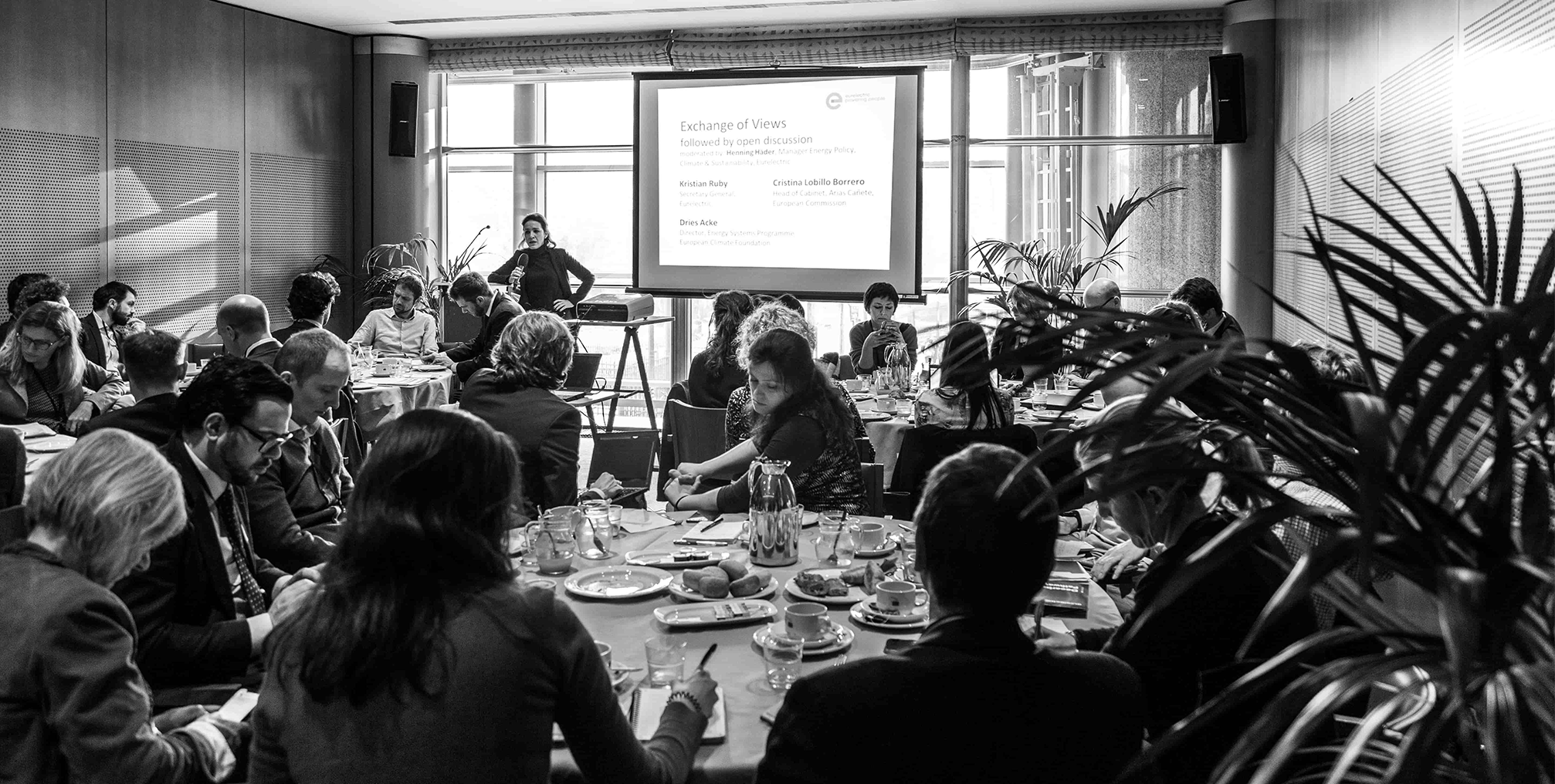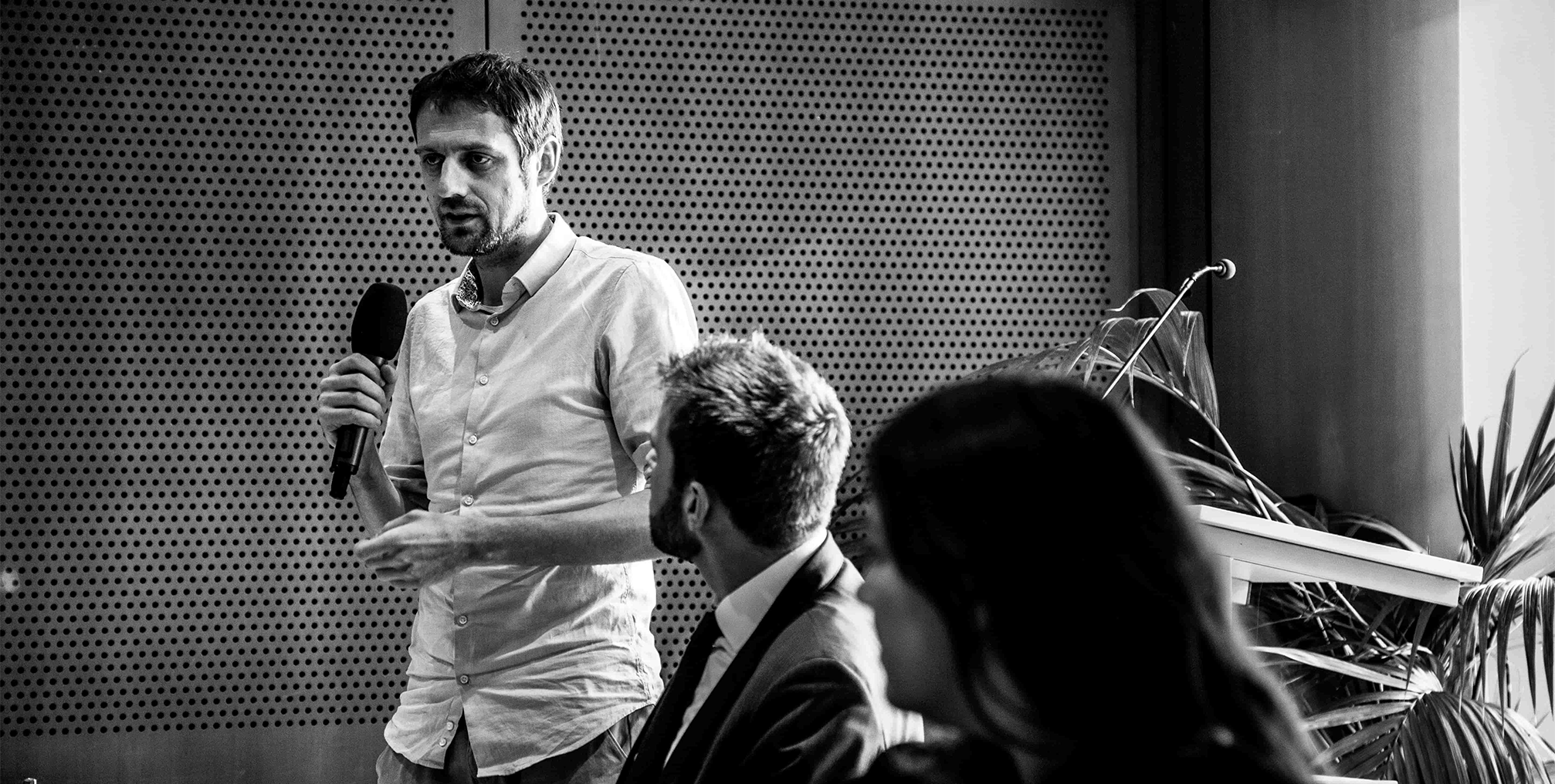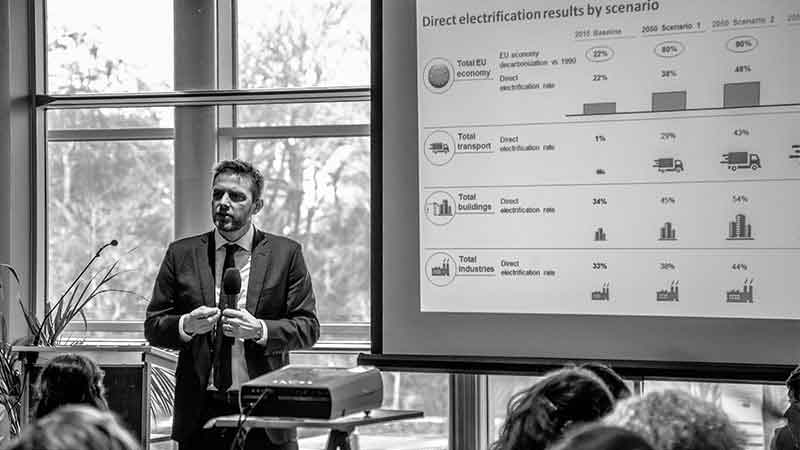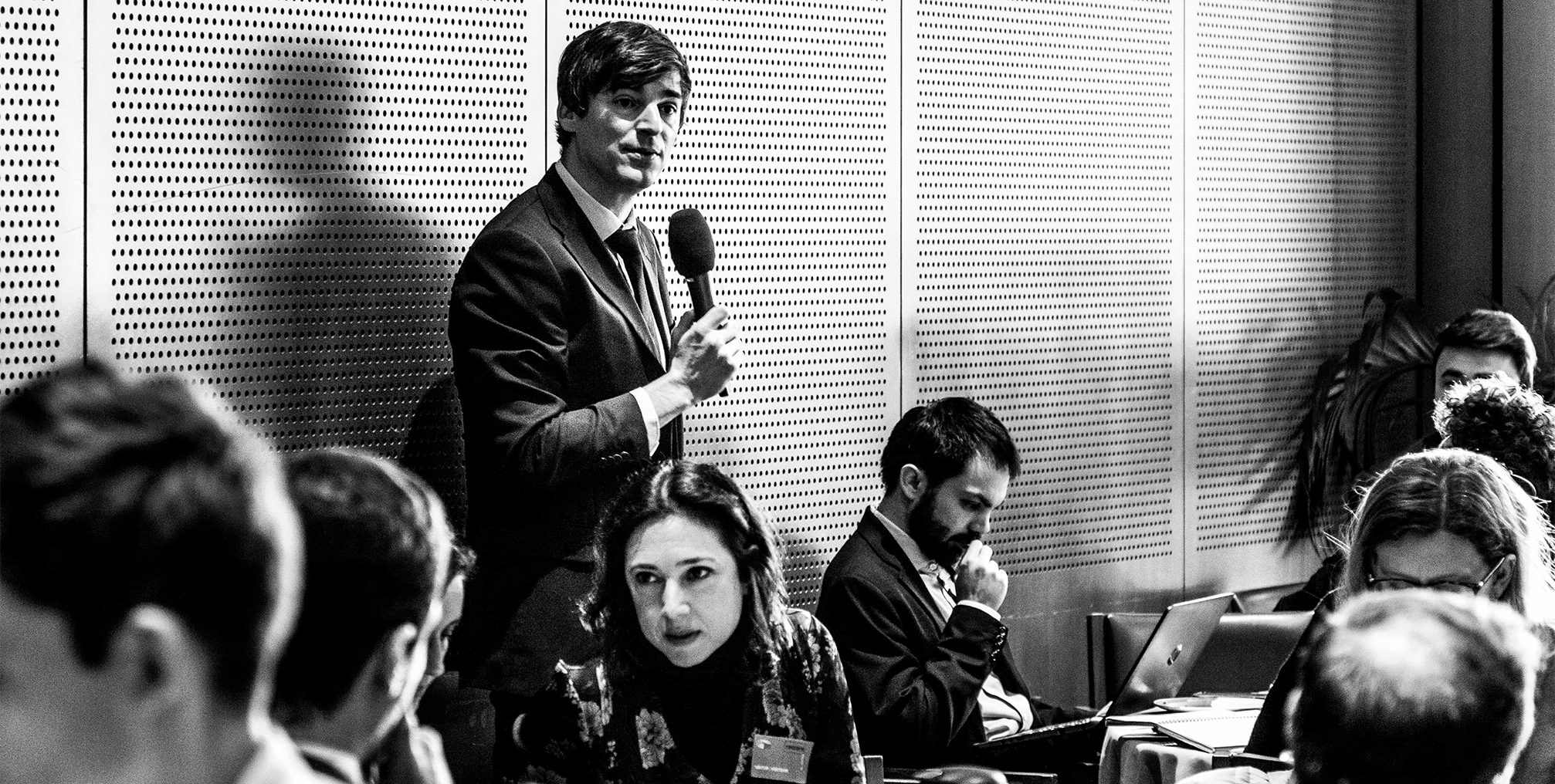“X marks the spot”: where electricity industry and EU institutions meet for ambitious climate debates

This week, ITRE and ENVI – the EU Parliament’s committees working on industry and environment – are called to vote on Europe’s 2050 Long Term Strategy towards a climate neutral economy, also known as “A Clean Planet for All”. Europe’s pathways towards carbon-neutrality are of paramount importance for representatives of the public and private sector alike. They all have a role to play in ensuring a sustainable transition for Europe’s economy and citizens.
But what are the fundamentals of EU’s carbon neutrality?
This was the central question addressed during a Eurelectric breakfast debate between Florent Marcellesi (Green Member of the European Parliament), Cristina Lobillo Borrero (Head of Cabinet of Commissioner Canete), Dries Acke (Director of the Climate Energy Foundation) and Kristian Ruby (Secretary General of Eurelectric).

Cristina Lobillo Borrero
All concurred with a crystal clear answer: Europe must decarbonise by 2050. This is a realistic objective that Europe’s power sector is committed to attain well before mid-century.
MEP Florent Macellesi emphasised the importance of clarity for leading the way to a fully-fledged decarbonisation:
“To lead, we need to have a credible and clear dynamic. If we have the capacity to say what we are aiming for, the others will follow us. The power sector is on the right track. However, we also have to keep in mind that deep decarbonisation is only possible with a deep change of our behaviour as individuals”.

Florent Marcellesi
While addressing the importance of reaching carbon-neutrality in a socially fair way, Cristina Lobillo said:
“This is probably the biggest revolution that we have to tackle. We need to talk across sectors, from transport to agriculture, and keep in mind the social aspects […] but, there is no place for coal in the EU, and several initiatives are there to help countries in their transition. There are not many ways to reach carbon-neutrality, but they should all include technological developments and both public and private investments, in Europe, as well as beyond its borders”.

Kristian Ruby
“Electricity is the vector that can decarbonise the fastest, and we are putting our best efforts into providing other sectors with a clean energy solution. This is not a journey devoid of twists and turns, but one that needs cooperation, cross sectorial commitments and investments of around 2 billion euros to cover generation assets and grid reinforcement.” – said Kristian Ruby.
Dries Acke commended the immense drive demonstrated by leaders of the electricity sector. Fully supporting the increased direct and indirect electrification objectives, he called upon legislators to reduce the levels of ambiguity and provide clear definitions of concepts before issuing regulations.

Dries Acke